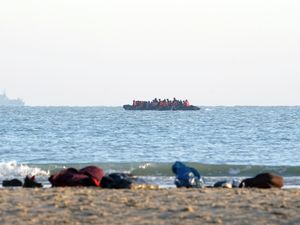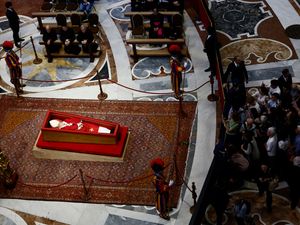Peter Rhodes on dodgy backs, the N-word and what have the imperialists ever done for us?
Read the latest column from Peter Rhodes.

Ah, the eternal mystery of the human spinal column. I spent one day messing about with boats, heaving trailers, hauling masts up, raising sails, weighing anchors, winching luggers and suchlike manly and spine-challenging things. Result: not a twinge.
The next morning I picked up a tin of shaving foam and shook it. Result: instant back spasm and banjaxed for the next 48 hours.
Groucho Marx famously declared: “These are my principles and if you don't like them, well, I have others.” This week Scotland's first minister Nicola Sturgeon in effect told her country's rebellious teenagers: “These are your examination results and if you don't like them, well, I have others. “ A review of the grades duly followed. Sturgeon is a Marxist – official.
This incessant desire to please people at all costs is often misguided. It led the BBC, for example, to describe how attackers yelled the N-word in a racist assault – and they broadcast the word in full.
Are they mad? Is Auntie Beeb not aware that this word is so toxic that it must never be uttered? The only justification seems to be that the victim's family wanted the word used, to stress the savagery of the attack. But journalism is about reporting the facts within the rules of your profession. It is not about doing what a family asks you, no matter how nice that may seem.
I was struck by the comment on the issue from the BBC's black DJ, Sideman, who resigned over the row and declared: “The BBC sanctioning the N-word being broadcast on national television by a white person is something I can't rock with.” Hang on. What's this “by a white person” business? Is it okay for black people to use the N-word but not white people? That is already accepted by some academics in the United States but are we in Britain prepared for speech permitted by colour? I'm not sure I rock with that.
Imperialism is a great evil. But it can sometimes unify minorities in an occupied land. Why fight with your neighbours when you both agree that the occupiers are the real enemy? This may explain why in Lebanon, a tortured little country divided into countless warring sects, 50,000 people in 24 hours signed a petition calling on France, which governed Lebanon from 1922-42, to take over the administration of the country.
It is rare to see folk actually begging to become a colony and it probably won't happen in Lebanon. If it did, how long before the guerillas of the People's Front of Lebanon would meet secretly in a peaceful Beirut governed from Paris with prosperity, tolerance, civilization, vineyards and aqueducts all around, and rage: “What have the French ever done for us?”
The Lebanon petition reminded me of the Sri Lankan who, as civil war broke out in 1983, asked me, in despair at his island's government: “When are you British coming back?”





